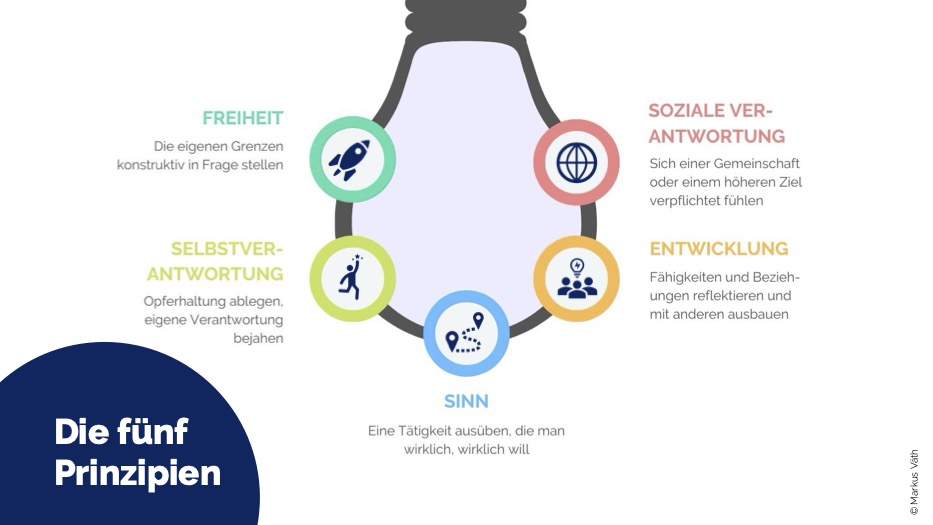Background
What is behind the New Work concept? What are its roots, its core, but also misunderstandings? Here I explain the most important points about New Work and give you a well-founded orientation.
“Work is there for people, not people for work.” This programmatic sentence stands like a warning over the life’s work of social philosopher Frithjof Bergmann. An exotic figure among the thinkers of the 20th century who dealt with the core issues of work and freedom. He considered an individual’s activity within our work system and thus within the organizations that constitute it to be “a mild illness that comes on Mondays and goes on Fridays”. He repeatedly criticized what he called “wage labour in a miniskirt” and that he did not see his idea of New Work being consistently implemented anywhere.
As a result, Bergmann showed practically no interest in the inner workings of organizations, organizational development, management, leadership or similar topics. He always thought big: for him, New Work was a social issue, not just an economic one. In this sense, derivations of his New Work concept for modern organizations are also a good deal of independent further development. This can be seen in the very broad discourse that has developed on the phenomenon of New Work – from general philosophical debates on work and freedom to the discourse on humanization in organizations and the management discourse on methods and techniques of modern organizational design. At the same time, this broad discourse is a sign that New Work has arrived in the mainstream of organizational development.
Frithjof Bergmann has repeatedly emphasized that the central values of his New Work are freedom, independence and participation in the community. He advocated a new way of working, which should be expressed in everyday life through a practical tripartite division: traditional gainful employment within the wage labour system, which he regarded as very problematic; what he himself called “high-tech self-sufficiency” for the individual (which in his view can only be achieved with enormous innovations in digitalization and production technology); and the work that people really, really want – not necessarily as paid work, but as an activity that supports the individual, allows them to play to their personal strengths and meets their needs.
This page is an excerpt from my fundamental article on New Work in the “Zeitschrift für Organisationsentwicklung” (issue 4/23).
If Bergmann’s writings are taken seriously, their application in traditional organizations is out of the question, as they operate in a normal economic or social context that does not allow or promote “work that you really, really want”. So how can Bergmann’s inspiring idea of meaningful work and being a living human being be realized in normal organizations? This requires a conceptual bridge that accommodates the core of the “true” New Work on the one hand and accepts social realities such as a social market economy or a wage labor system on the other – i.e. no longer trying to understand New Work as a revolution of conditions, but initially as a revolution of thinking within conditions.
This is achieved by translating the original values of New Work – independence, freedom and participation in the community – into principles that can apply simultaneously to the levels of people, organization and society. I propose the five principles of freedom, personal responsibility, purpose, development and social responsibility. Work that you really, really want would become an individual, organizational and social process of reflection and discovery from which everyone should ultimately benefit. To achieve this, however, we must beware of the dangerous shortening of debates that unfortunately often occurs in the New Work discussion at the moment. For example, simply working from home is already being praised as New Work – although in its concrete practical form it is still associated with a culture of control and exploitation and not with meaningful work, freedom and independent organization.

As managers, consultants and academics, we should continue to engage with New Work in an active and at the same time benevolently critical way – so that the inspiration of “work that you really, really want” and the impulse of freedom, independence and participation in the community also prevails in organizations. This would be a meaningful implementation of Bergmann’s legacy, whose words and actions were always characterized by philanthropy and kindness. Work that people really, really want, in organizations that are people-oriented and socially responsible – that could be a goal for New Work in the 21st century.
Copyright © Markus Väth
Telefon:
+49 (0) 176 2323 6087